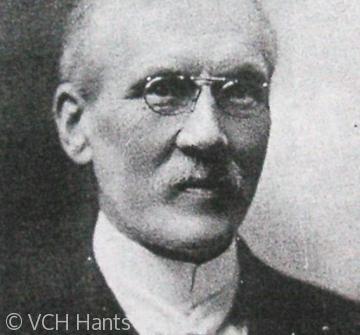The Men’s Own Brotherhood Movement in Basingstoke: 1899-1929

For 30 years a Pleasant Sunday Afternoon (hereafter P.S.A.) Society, also known as the Men’s Own Brotherhood, was attached to London Street Congregational Church in Basingstoke. Although a number other Free Churches introduced something similar in the early years of the 20th century they were relatively short lived by comparison with London Street’s P.S.A.
Originating in the West Midlands, the P.S.A. Movement had been started in 1875 by John Blackham, a Sunday school teacher and deacon of the Ebenezer Congregational Church, West Bromwich. It quickly spread and societies were established in many parts of the country, including Hampshire. As expressed in a work published at the height of the Movement in 1912, ‘the attempt … [was] nothing less than to teach a “democratic religion” leading to a “practical Christianity” full of love and good works.’ Sunday afternoon meetings were designed to be ‘brief, bright and brotherly’ with lively hymn singing, musical contributions and ‘helpful and often eloquent addresses’, thereby appealing, in particular, to working men who would not otherwise have attended church services.
The inaugural meeting of London Street P.S.A. was held in May 1899 and the final one in October 1929. To symbolise its close links with the Church, the first President was the minister of London Street, the Revd Capes Tarbolton (see image). His successors were also closely associated with the P.S.A. which at its height during the first decade of the 20th century had around 300 members. Following its launch, the P.S.A. quickly took on a life of its own with half yearly book distributions, a slate club and a coal club inaugurated in 1901, open air meetings and picnics, the introduction of Pleasant Saturday Evening entertainments and later outings and philanthropic enterprises. Notwithstanding the phrase ‘men’s own’, women were by no means excluded from the activities of the Brotherhood. Although meetings were intended primarily for men, on occasions women were invited to attend. Known as ‘open meetings’, they proved to be very popular. Women were also involved through their musical contributions and occasionally giving talks. The London Street P.S.A networked with similar societies through various groupings, which changed over the years, and was associated with the National Brotherhood Movement.
In the autumn of 1929, by a small majority, members resolved that meetings be ‘discontinued forthwith’. What prompted this decision is not entirely clear, but in all probability it was declining numbers and a feeling that the P.S.A. had outlived its usefulness. However, the winding up of London Street’s Brotherhood did not mark the end of the Movement in Basingstoke. Four years later, in 1933, a branch of the Post-War Brotherhood was established in the town.
(For the source of the quotations please see the asset)
Roger Ottewill
June 2018
Content derived during research for the new VCH Hampshire volume, Basingstoke and its surroundings.


